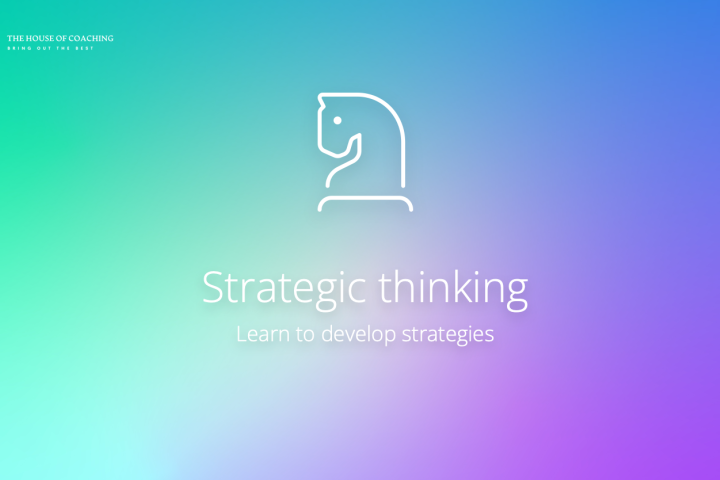Strategic Thinking
This course teaches the core concepts and techniques of strategic thinking, based on recent insights from neurocognitive sciences, systems science and strategy development.
Effective strategies anticipate changing conditions and include various scenarios. These scenarios are developed together with others and tested for feasibility and resilience. A good strategist knows how to switch easily within the various prepared scenarios.
We develop a strategy by means of the Strategic Dialogue. This allows you to easily eliminate thinking errors such as groupthink and formulate a strategy that is well understood and supported by everyone.
In this training course, you will learn useful principles and techniques to take strategic conversations to the next level.
In this four-day workshop you will learn:
- To recognise the challenges of the VUCA world
- To recognise the typical pitfalls such as: firefighting, slipping targets, side effects, ...
- To recognise and intercept common thinking errors
- To use systems thinking as a strategic tool
- To develop strategic scenarios
- To facilitate strategic dialogue
- To translate strategy to tactical and operational levels
- To use storytelling as a strategic tool
Programme:
Module 1: General framework strategic thinking
- What is strategy?
- Overview, insight, view
- The VUCA world
- The Cynefin model
- Quality of perception
- Ladder of inference
- Recognising thinking errors
Module 2: Analytical thinking
- Techniques and tools:
- Strategic drivers
- SWOT analysis including confrontation matrix and strategic choices
- Root Cause Analysis & Ishikawa
- Systems thinking vs. reductive thinking
- Systemic view using the iceberg model
- Distinguishing results, patterns, trends, systems, processes, models
Module 3: Causal Loop Diagram (CLD)
- Causality, relationships, feedback loops, delays
- Techniques and tools for CLD mapping
- Limits and levers
- Balancing and reinforcing loops
Module 4: Systemic archetypes (part 1)
- Patterns and effects
- Mindset
- Recognising, overcoming and preventing or modifying limiting patterns
- Limits to growth
- Shifting the buden
- Eroding goals
- Escalation
Module 5: Systemic archetypes (part 2)
- Success to the successful
- Tragedy of the commons
- Fixes that fail
- Growth and underinvestment
- The law of requisite variety
Module 6: Strategic dialogue
- Your role as facilitator
- Conversational space
- Dealing with resistance
- Gaming
- Storytelling
Module 7: Strategy development
- Creating levers
- Strategic, tactical, operational collaboration
- Simulations
- Scenario planning
- Applications
Module 8: Case studies
- Gaming strategic cases:
- Merger/acquisition
- Change
- Disruption
- Product/Service launch
- Feedback on cases
Aftercare
Afterwards, participants are asked to develop a strategy for their own case, which they feed back (online) to each other and the trainer.
Experiential Learning at The House of Coaching
The House of Coaching stands for experiential learning. As a participant, you continuously engage with theory through practical, experiential exercises that teach you to apply your skills in real situations. We facilitate the learning process through maximum interaction and sharing of experiences. That's learning that really sticks!

Would you like to develop these 21st Century Skills for your people, team or organisation?
Then get in touch with us and we'll work out a programme together!
| Program category | |
|---|---|
| Program type | |
| Program languages | |
| Number of modules |
8
|
| Number of participants |
6 - 12
|